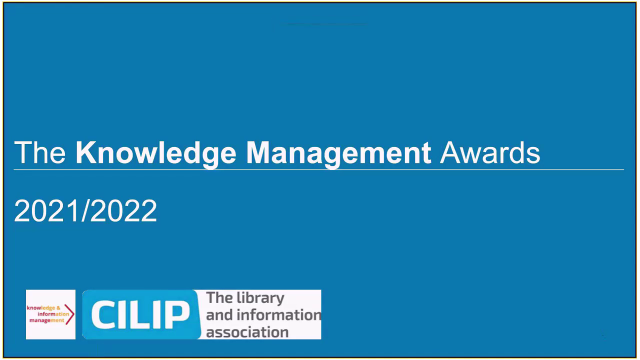
Appropriate consideration of cultural differences in knowledge management (part 2)
This article is part of an ongoing series of articles on cultural awareness in KM.
In the first part of this two-part series, I expressed concern about the article Knowledge Management in China, and in particular the claim in the article that “There are real cultural barriers in the Chinese culture [to knowledge management (KM)].”
I concluded that first part with the advice that while national-level cultural characteristics can assist you in understanding the cultural differences you can expect when working in a different country and how to respond to them, they are only just one part of the picture. And these cultural differences are certainly not an impediment to KM.
In this second part I follow up with some specific suggestions that can help to facilitate the successful adoption of KM initiatives in other cultures.
First, accept that your KM practices might be WEIRD
A foundational assumption of psychology is that there are “psychological universals”, which are core mental attributes common across all human cultures. A 2005 paper1 advises that on the basis of the assumed existence of these universals, “interventions [are] designed to solve social and psychological problems in other cultures.” However, the paper reveals that universals have been a neglected area of psychological research, and warns that:
… it is important to place any social interventions into the affairs of other cultures on firm ground that is based on clear knowledge of universals and their boundary conditions as well as the particular prerogatives and psychological preferences of those cultures that may differ considerably from one’s own. This is not a call for unbridled cultural relativism but … a call to be slow to judge other cultures.
A startling 2010 paper2 then seriously calls into question the assumption that there is little variation across human populations, alerting that broad claims about human psychology and behavior in the world’s top journals are based on samples drawn entirely from Western, Educated, Industrialized, Rich, and Democratic (WEIRD) societies:
… our review of the comparative database from across the behavioral sciences suggests both that there is substantial variability in experimental results across populations and that WEIRD subjects are particularly unusual compared with the rest of the species – frequent outliers. The domains reviewed include visual perception, fairness, cooperation, spatial reasoning, categorization and inferential induction, moral reasoning, reasoning styles, self-concepts and related motivations, and the heritability of IQ. The findings suggest that members of WEIRD societies, including young children, are among the least representative populations one could find for generalizing about humans. Many of these findings involve domains that are associated with fundamental aspects of psychology, motivation, and behavior – hence, there are no obvious a priori grounds for claiming that a particular behavioral phenomenon is universal based on sampling from a single subpopulation.
While some other researchers have disputed3 the study, there has been an overwhelming groundswell of support for the findings.
So, while your KM practices might work well in WEIRD societies, these societies “are among the least representative populations one could find for generalizing about humans.” This means that rather than there being “real cultural barriers [to KM] in the Chinese [or any other] culture”, there are potentially real and significant cultural biases in many current KM practices, and at least some of these practices won’t be readily transferable to other cultures.
As I advised at the end of the first part of this two-part series, “Every region is different, every organisation is different, and every person in an organisation is different. Understanding the specific impediments to KM in individual organisations, and what can be done to address these, needs to be the focus.”
Then, consider how you can facilitate the successful transfer of KM practices
Advice on how to successfully transfer your KM practices to another culture comes from Pamela Hinds, professor in management science and engineering at Stanford University, in an article in Harvard Business Review. Hinds reinforces the WEIRD study findings, writing that best practices are optimized for a particular place and time and don’t necessarily transfer to another cultural context.
She reports on insights gained from three studies to which she has contributed, and from these insights, offers the following suggestions:
- Focus on the intent of the practice, not specific behaviors. When leaders focus on the goals and intended outcomes of the practice, it creates space for workers to adapt the practice to the cultural context while still realizing the underlying intention.
- Have a cultural liaison help translate the practice. This is someone who deeply understands the practice and can do the work of making sure it’s adapted in a way that maintains the spirit of the original.
- Strive for compatibility, not replication. When teams are globally distributed but collaborating closely, allowing each site to adapt the practice to their own cultural context can create confusion and strain coordination. … The challenge is finding practices that are compatible across multiple culture contexts. Experimentation—and flexibility—can be helpful in identifying practices that work across sites.
- Support experimentation. It often takes multiple iterations to find an adaptation that fits the cultural context and achieves the original intent of the practice.
Postscript: Since the publication of this article series, an article has been published in The Conversation echoing the issues I have raised.
Article sources: BBC, Harvard Business Review.
Header image source: Adapted from Nyaya Health: Community Health by Possible, which is licensed by CC BY 2.0.
References:
- Norenzayan, A., & Heine, S. J. (2005). Psychological universals: What are they and how can we know?. Psychological bulletin, 131(5), 763. ↩
- Henrich, J., Heine, S. J., & Norenzayan, A. (2010). The Weirdest People in the World. Behavioral and Brain Sciences, 33, 61–83. ↩
- Gaertner, L., Sedikides, C., Cai, H., & Brown, J. D. (2010). It’s not WEIRD, it’s WRONG: When Researchers Overlook uNderlying Genotypes, they will not detect universal processes. Behavioral and Brain Sciences, 33(2-3), 93-94. ↩
Also published on Medium.







Hi Bruce,
Your extract of Pamela Hinds’ piece seems to me to be very similar to the situation for (language) translation. So much so that in the European Union, legislation in not translated from a master text into all the other languages but written as original texts in the native language of EACH of the member states – simply to try to eliminate disadvantaging member states through translation errors.
1 : 1 transfer of method or practice into different cultures simply isn’t good enough. And that, in a nutshell, is what’s wrong with ‘cookie cutter’ approaches to change management… they all need to be contextualized to the situation & culture in each specific application.
Many thanks Mike for your comment. As you say, one-size-fits-all approaches are inappropriate.
Great to hear that the European Union is creating original native language legislation rather than translating from a master text. Language is part of how humans across different cultures conceptualise the world, and while words can often (but not always) be translated, the subtle conceptual context can be easily lost, or worse still, changed. Because of this I have serious concerns about the growing use of electronic translation.
Best regards,
Bruce.